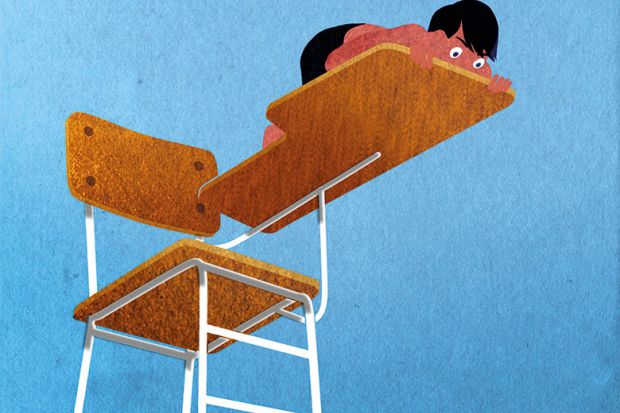“Make sure you know which train or bus to catch, at what time(s), and the stop closest to your destination. Check the timetable! Even in large cities, bus services can be few and far between in the evenings. Avoid waiting alone at a bus stop at night, particularly in poorly lit or deserted areas.”
You might assume that this advice was written by a fearful parent for a nervous teenager embarking on their first solo trip to a distant town. In fact, it is taken from a training leaflet titled “How can I be safe while interviewing people?”, written for its postgraduate students by the Centre for Urban History at the University of Leicester.
This is just one example of the extent to which the modern culture of fear has infiltrated university campuses. The leaflet evokes a vision of urban Britain in which the perils of a bus journey and the dangers posed by visiting people in their homes demand “that someone knows where you are going”.
Why aren’t academics up in arms about such fear-mongering? After all, these are the same academics who are often in the forefront of exposing alarmist political and newspaper narratives about rising crime and immigration. Yet reports of an epidemic of academic stress and assertions that campus racism, harassment, rape and bullying are going from bad to worse are rarely scrutinised or contested by scholars. Recent warnings about an increase in suicides among UK students swiftly acquired the status of a taken-for-granted truth – overlooking the fact that, thankfully, suicide rates have actually been fairly constant over recent decades.
Institutions of higher education do have a responsibility for protecting their staff and students from threats to their safety. Unfortunately, instead of being treated as a technical or managerial issue, safety has become a central feature of campus culture. Judging by the numerous references to it in mission statements and other documents published by universities, it would appear that the institutionalisation of safety serves as the dominant principle of higher education.
And although many colleagues grumble about some of its more absurd features, campus safety has also mutated into an organising principle of academic life. The university has become a carefully regulated space where the vaguest possibility that an initiative could present safety risks is justification for curbing it.
One reason why the culture of fear appears to exercise significant influence on campuses is that the academic community is uniquely hospitable to the performance of fear. Academics write reports that raise problems, issue warnings and, on occasion, resort to using fear appeals to draw attention to what they consider to be genuine issues. In recent years, both faculty and students have embraced “raising awareness”, a practice that not only highlights threats both on and off campus but, on occasion, also raises the alarm.
On campus, performing fear communicates the idea that “we care about your safety” – in more or less the same way that parents constantly advise their children to be careful. Leicester’s leaflet for postgraduates acknowledges that “the vast majority of people who offer you an interview will be absolutely genuine and pose no risks at all”. But it goes on to assert that since “interviewing often involves visiting people in their own homes, with limited prior contact with them, it is still worth thinking about possible hazards and how to minimise or avoid them”. As well as telling someone where they are going, students should also reflect on the fact that “it might be appropriate to travel by bus in daylight, but less advisable if you are returning in the evening”.
Once upon a time, engaging with uncertainty was celebrated as an interesting, even pleasurable act of intellectual discovery. One of my most memorable and stimulating experiences was the year I spent in Kenya, carrying out field research on Mau Mau rebels for my PhD. During that time, I visited and interviewed activists in their homes. My work often led me to remote villages in the Rift Valley, where it was not possible to stay in touch with the outside world. No one asked me about potential risks regarding my personal safety. I was trusted by my supervisor to get on with my research, and report back at the end of the year.
Today, most institutions of higher education would not permit an academic, never mind a student, this level of freedom. Ethics committees would conclude that such a venture was unsafe and, therefore, probably unethical. They would rather that students embarked on a process-led journey and ticked all the right boxes.
When we constantly subject students and staff to the message that even the most routine activity constitutes an issue of personal safety, it is not surprising that universities become estranged from the values of freedom, experimentation and risk-taking. But those are precisely the values we need for dealing with the intellectual and scientific challenges that we face.
Frank Furedi is the author of How Fear Works: The Culture of Fear In The 21st Century, published by Bloomsbury Press.
Register to continue
Why register?
- Registration is free and only takes a moment
- Once registered, you can read 3 articles a month
- Sign up for our newsletter
Subscribe
Or subscribe for unlimited access to:
- Unlimited access to news, views, insights & reviews
- Digital editions
- Digital access to THE’s university and college rankings analysis
Already registered or a current subscriber?






